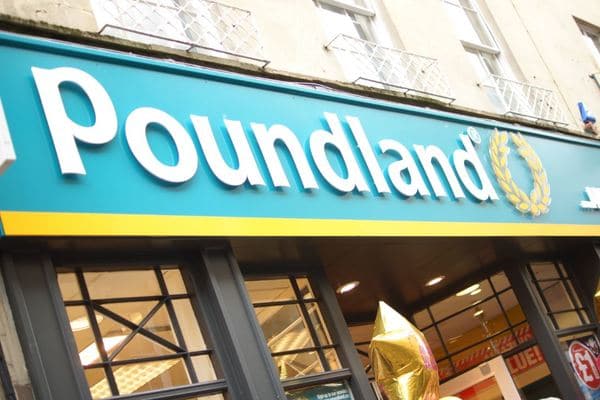As British consumers flock to discounters, Poundland recorded over £1bn in sales for the financial year ending in March.
In its maiden results since it debuted on the stock market last year, the value retailer saw total sales rise 11.9% to £1.1bn from £997m in the previous fiscal year.
Since the 2008 recession, Poundland has tripled in size and now it‘s trying to increase its market share with aggressive expansion plans, including a move into Spain and last year and now a £55m takeover of rival 99p stores.
The acquisition has been put on hold to allow for a Competition and Markets Authority investigation which Poundland said it‘s fully co-operating with. A decision is expected to be reached in October and if the deal goes ahead, the high street chain will add 250 stores to its estate.
Jim McCarthy, Chief Executive, said:
“I am pleased to report a record year of sales and profit growth for Poundland. We saw strong trading in the UK and Ireland and our international expansion plans in Spain are proceeding well with seven multi-price Dealz stores now open. Notwithstanding a challenging start to the year, I expect to see a year of growth for Poundland as we have a very strong opening programme and we will continue to be the standard bearer for genuine and amazing value on the UK’s high streets and retail parks.”
“Such blistering rates of growth are the sort of thing the mainstream supermarkets can only dream of. Poundland clearly didn‘t get the memo about price deflation and squeezed margins,” comments Paul Thomas of the retail consultancy Retail Remedy.
“While it is flirting with multi-deals on some lines, its proposition remains clear and compelling – known brands for £1,” adds Thomas. “This has seen it thrive through two recessions, and continues to deliver now as the low price point encourages more confident shoppers to indulge in impulse purchases”
Despite a promising first year as a publicly traded company however, McCarthy warned that he expects trading in the first half of the new financial year to be subdued after sales growth slowed.


















